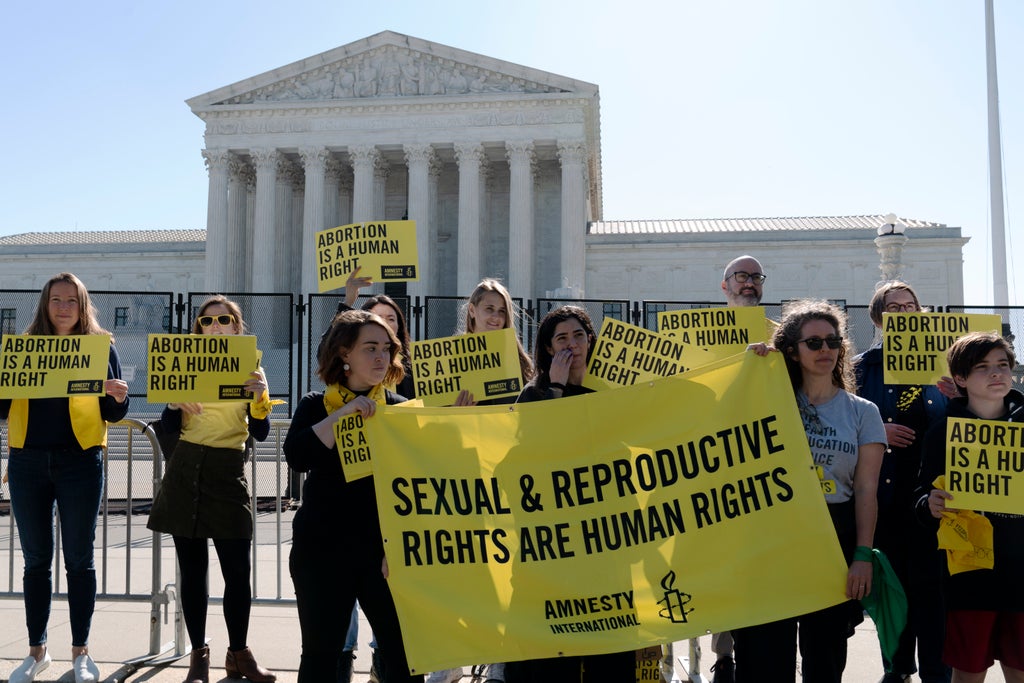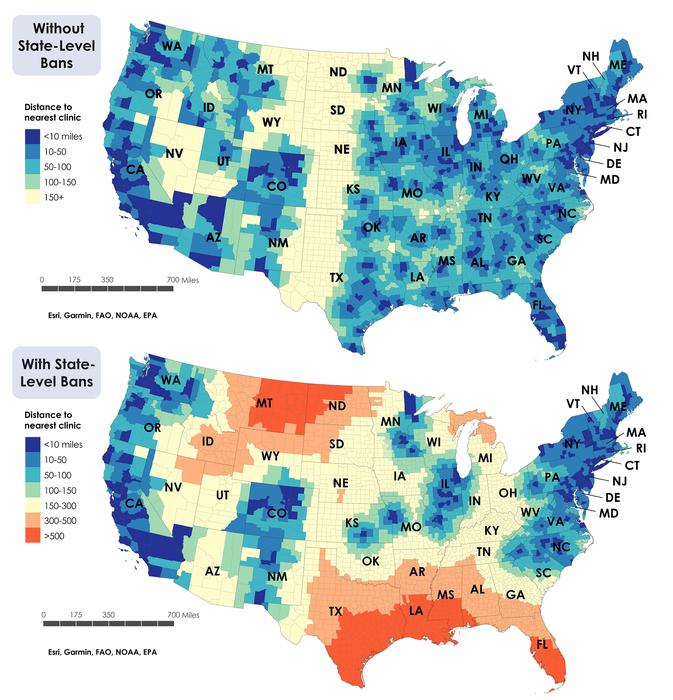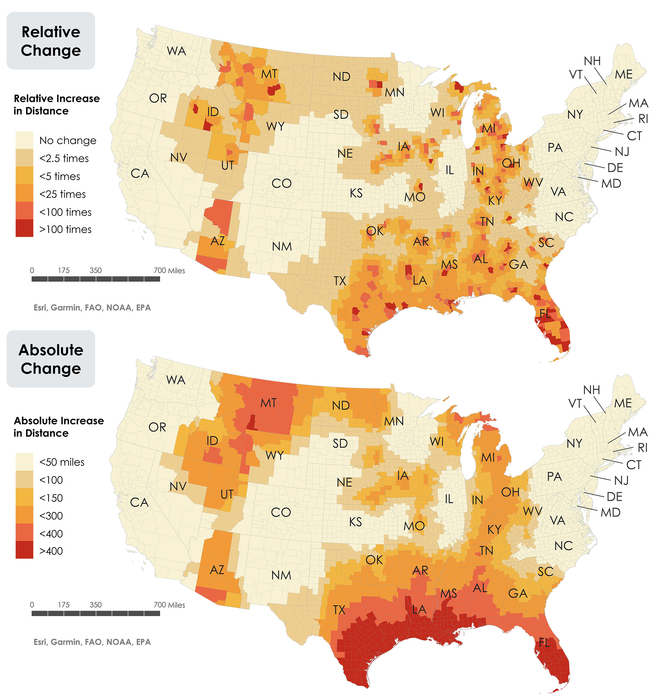
The median distance women have to travel to seek an abortion will triple if the US Supreme Court repeals the Roe v Wade ruling, a new study has warned.
Repealing the federal ruling will create “abortion care deserts” that will disproportionately affect women of colour, those living in poverty and people with less education, said the study, published in the journal Utah Women’s Health Review.
Researchers, including those from the University of Utah, said overturning the ruling would mean the median distance to a clinic increasing nearly three-fold from 40 miles to 113.5 miles.
“The entire South is going to be a desert for care. The most dramatic change will be for people who live somewhere that doesn’t border a state where it’s legal,” Brenna Kelly, a graduate student at the University of Utah and lead author of the study, said in a statement.
“You see that in the Intermountain West, too. People in Wyoming and parts of Nevada and Idaho come to Salt Lake City [in neighbouring Utah] for care. Post-Roe, the nearest place will be Colorado. People in Salt Lake who right now might be minutes from care are going to be hundreds of miles from it,” Ms Kelly said.
In the study, scientists assessed a list of abortion clinics from the Advancing New Standards in Reproductive Health group research programme’s Abortion Facilities Database that was up to date as of fall 2021.
They included a total of 739 clinics for analysis excluding closed clinics and those without abortion services.
For the 3,108 counties in the US, researchers established the current distance to a clinic and recalculated the distance by removing clinics in states with abortion “trigger” laws.
Scientists then calculated the relative change in distance for each county.

They also assessed data on the race, ethnicity, educational attainment, poverty and rurality of women aged 15-49 in each county from the database.
The study found about 24 million women will have to travel at least 150 miles more than they currently do to obtain care.
It also found Black women would experience the most dramatic increase in distance to care, followed by Hispanic women and those living in poverty.
Researchers said counties that would have the biggest increase in distance have large proportions of women of colour.

At least 21 states have so far passed legislation that would ban or restrict abortion if Roe v Wade were overturned, while five additional states will likely pass laws without federal protection.
There are already huge disparities in access to abortion care in the US, but if Roe v Wade is repealed and state legislation becomes law, researchers explained this would widen such disparities even more.
The study also found both rural and urban areas will experience dramatic changes in distance.
In rural areas, which already have poor access to healthcare, abortion services will be positioned even farther away.
People living in urban counties with trigger bans – set to take effect immediately if Roe v Wade is overturned – would experience the greatest relative change in distance, the study noted.
Citing an example, researchers said a person in Miami-Dade county, Florida, would need to travel less than a mile for care, but that distance would increase by 426 miles should the state’s legislation become law.
They said impacts would likely be compounded for women of colour who are also impoverished.
“Poor access to abortion care is associated with poor maternal and infant health, and many groups may experience increases in these impacts,” scientists wrote in the study.
The move would also further widen health disparities as people with financial means who can fly or drive to faraway clinics will have better access to care than those who rely on public transportation, scientists pointed out.
Clinics that remain open will also experience greater patient volume, researchers said adding that when restrictions were imposed in Texas in 2020, the number of out-of-state abortions skyrocketed by over 600 per cent.
While medication abortions may be sought online and become more widely available, scientists said these may be targeted by state-level policies.
“For many people who have good access now, it’s going to get worse. And the people who already struggle to get care, it’s going to be near impossible,” Ms Kelly said.







